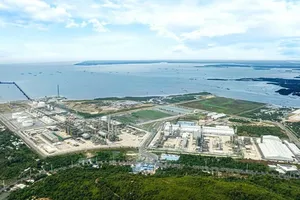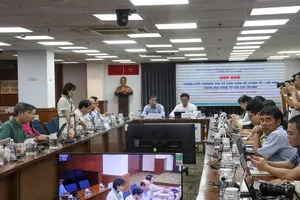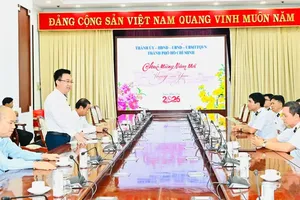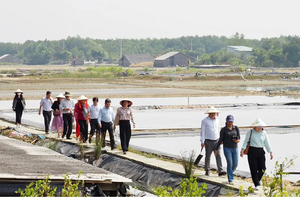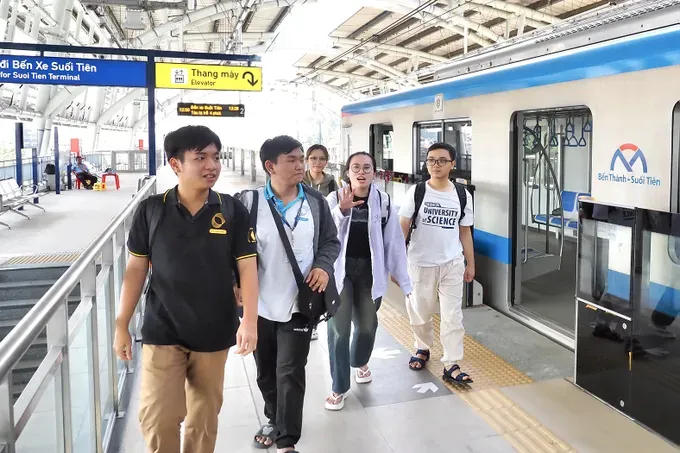
Throughout its development, Ho Chi Minh City has consistently functioned as the nation's economic locomotive and growth pole. Budgetary evaluation must now extend beyond mere revenue and expenditure figures to incorporate tangible efficiency metrics. This includes assessing the specific effectiveness of each inaugurated infrastructure project, the degree of improvement in public services, the enhancement of citizens' quality of life, and the reinforcement of social trust.
Ho Chi Minh City embarks on this new phase of development as the country's largest urban area, possessing significant economic and social standing. Its Gross Regional Domestic Product (GRDP) totals approximately VND2.97 trillion (US$112.6 billion), constituting 23.6 percent of the national total.
Furthermore, the city contributes VND681,000 billion to the state budget, which accounts for 33.4 percent of total national revenue, while its budget expenditure stands at VND237,500 billion, equivalent to 10.4 percent of the national total expenditure.
Following its administrative reorganization, Ho Chi Minh City is positioned to capitalize on opportunities to expand its market, increase investment attraction, connect infrastructure, integrate production chains, and elevate its international standing. This reorganization facilitates access to crucial financial resources and advanced technology, aligning with a new vision to become an 'international megacity' of Southeast Asia and one of the top 100 most livable cities globally. This strategic direction enables the city to fulfill its mission of pioneering, leading, and propagating development across the nation.
To realize the aforementioned objectives, the city has established an urgent requirement to enhance the leading role of public investment and fundamentally transform the budget management mindset. The focus must decisively shift from prioritizing 'how much to spend' to measuring 'how effective' the expenditure is, thereby utilizing tangible results as the primary evaluation standard.
According to Mr. Nguyen Tuan Anh of Saigon Industry Corporation, this shift represents more than just a contemporary budget management concept; it is a critical measure of public service responsibility. Every unit of budgetary expenditure must be directly converted into a specific, quantifiable result, such as a kilometer of road, a new school, a social housing area, or an improved public service.
This results-based methodology will be instrumental in preventing the fragmentation of resources and will allow the city to concentrate funds on programs and projects that possess widespread impact and yield the greatest social benefit.
Lecturer Huynh Thanh Dien of Nguyen Tat Thanh University reinforced this perspective, stating that under this new approach, every dollar of the budget must be linked to a specific project designed to significantly enhance citizens' quality of life.
As highlighted by the economic expert, results-based budgeting not only mitigates resource diffusion but also substantially strengthens social trust. This occurs when the public and businesses can clearly observe that public resources are directly translating into concrete development outcomes.
Crucially, this approach necessitates adopting a long-term vision for the budget. Ho Chi Minh City views the budget as a vital development lever, using efficiency as the central metric. This demands a strategic shift away from the mindset of merely 'increasing revenue rates' toward 'reducing revenue rates to expand revenue sources.' By lessening the burden of taxes and fees, the city aims to incentivize greater participation in business by individuals and enterprises, thereby forging a robust and sustainable revenue foundation.
Social trust should be strengthened
A results-based budgeting approach also places emphasis on infrastructure and the digital economy—key elements regarded as pivotal to creating momentum for Ho Chi Minh City’s growth. Metro lines, ring roads, and seaports are not merely transportation projects; they serve as “material levers” that help reduce logistics costs, expand regional and international connectivity, and enhance competitiveness. The city plans to allocate 4 percent–5 percent of its budget to science, technology, and innovation, aiming for the digital economy to contribute 30 percent–40 percent of its GRDP.
Many experts view this as a bold step, even though the state budget serves primarily as seed capital. The crucial factor lies in mobilizing social investment, particularly from the private sector and international funds. The city needs diverse capital mobilization mechanisms through public–private partnerships (PPP), combining public funding with social investment under streamlined, transparent procedures and clearly defined responsibilities. PPP will be the key if benefits and risks are balanced, enabling enterprises to invest with confidence in a transparent legal environment under a government that fosters and shares growth.
Dr. Huynh Thanh Dien emphasized that genuine breakthroughs must come from the private sector and technology corporations—the entities directly creating products, services, and business models that can stimulate the broader economy. Only when public funds successfully activate social capital will the goal of a digital economy become attainable.
Meanwhile, Mr. Nguyen Tuan Anh suggested that the city should establish a mechanism for ‘progress and performance-based monitoring’ for each project and apply digital technologies in supervision—from construction site cameras and progress-tracking data to transparent applications that allow citizens to follow developments.
In the coming period, Ho Chi Minh City should prioritize three core areas including regional and logistics infrastructure connectivity, interoperable data standards, and institutional coordination reform. The city must decisively eliminate achievement-oriented practices, emphasize post-evaluation, and prioritize projects that deliver clear social benefits. When public funds contribute not only to physical development but also to building social trust, Ho Chi Minh City will truly affirm its position as an ‘international megacity’ leading national development through a results-based budgeting mindset.









